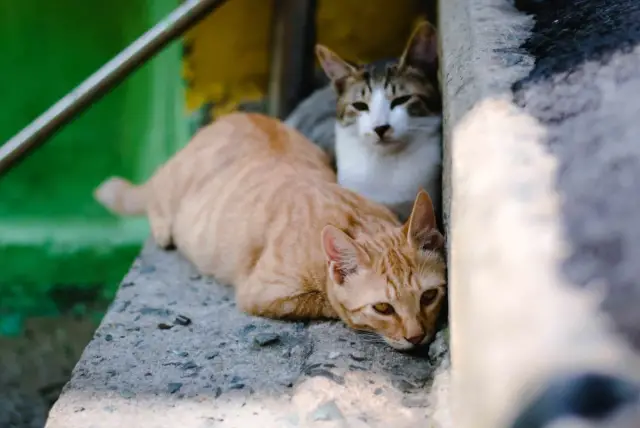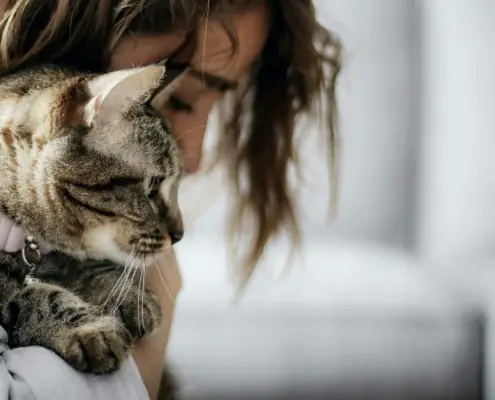
Cats have long been known for their independent and solitary nature. They are often associated with being aloof and self-sufficient creatures. However, recent studies have shed light on the social nature of cats, suggesting that they may not be as solitary as once believed. This article aims to explore the social behaviors of cats and answer the question: Are they truly sharing animals?
Understanding the behaviors of cats
To understand whether cats are sharing animals, it is crucial to delve into their behaviors. Cats are known to mark their territories, exhibit hunting behaviors, and engage in social grooming. These behaviors indicate that cats have a complex social structure and interact with their fellow felines in various ways.
The concept of sharing in the animal kingdom
Sharing is a common behavior observed in various species in the animal kingdom. From primates sharing food to birds cooperating in nest-building, sharing plays a significant role in promoting social bonds and ensuring the survival of the group. It allows individuals to distribute resources and establish cooperative relationships.
Are cats truly sharing animals?
While cats may not exhibit sharing behaviors to the same extent as other animals, studies suggest that they do engage in certain forms of sharing. One example is communal feeding, where cats in a multi-cat household will eat together from a communal food bowl. This behavior indicates a willingness to share resources, albeit within their familiar social group.
Evidence of sharing behaviors in cats
Observational studies have shown that cats also engage in behaviors such as allogrooming, where they groom each other. This behavior is often seen among cats that are familiar with each other, indicating a level of trust and cooperation. Additionally, cats have been observed sharing resting spaces and engaging in play behaviors, both of which suggest a degree of social interaction and sharing.
Factors influencing sharing behaviors in cats
Several factors can influence the sharing behaviors of cats. One significant factor is the socialization they receive during their early development. Cats that are exposed to positive social experiences during their critical socialization period are more likely to exhibit sharing behaviors later in life. Additionally, the availability of resources, such as food and resting spaces, can also influence whether cats choose to share or not.
The role of socialization in cat sharing behaviors
Socialization plays a crucial role in shaping the behaviors of cats. Kittens that have positive interactions with their littermates, mother, and humans during their early weeks are more likely to develop strong social bonds and engage in sharing behaviors. Early socialization also helps cats build trust and confidence, making them more receptive to sharing resources with other cats.
Comparing cat sharing behaviors to other animals
While cats may not exhibit sharing behaviors to the same extent as some other animals, such as primates or canines, it is important to consider their evolutionary background. Cats are solitary hunters by nature, and their survival instincts often prioritize individual needs. However, domestication has played a role in shaping their social behaviors, leading to increased interactions and occasional sharing behaviors.
Benefits of fostering sharing behaviors in cats
Encouraging sharing behaviors in cats can have several benefits, both for the cats themselves and their owners. Sharing resources can help reduce competition and potential conflicts among cats in multi-cat households. It can also foster stronger social bonds and reduce stress levels in cats, leading to a more harmonious living environment. For owners, observing sharing behaviors in their cats can be a rewarding experience, as it indicates a positive and sociable relationship among their feline companions.
The social nature of cats and what it means for pet owners
In conclusion, while cats may not be considered as sharing animals in the same way as some other species, they do exhibit certain sharing behaviors. Cats are social creatures that engage in activities such as communal feeding, allogrooming, and sharing resting spaces. The extent of sharing can be influenced by factors such as socialization and availability of resources. Fostering sharing behaviors in cats can lead to stronger social bonds and a more harmonious living environment for both the cats and their owners. Understanding and appreciating the social nature of cats can help pet owners provide a fulfilling and enriching life for their feline companions.
If you enjoyed my article, I would appreciate you sharing it with your network.

Sima Ndlebe
Sima writes for CatBuzz. He is interested in Cats, Health and Fitness, and Entrepreneurship.
Published: 15 November 2023




